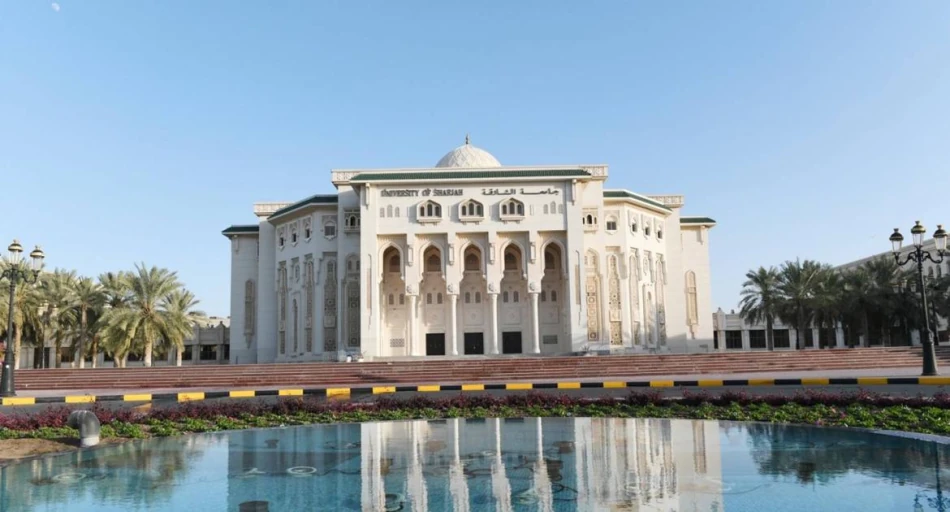
Soaring to New Heights: Sharjah University Launches Pioneering Doctoral Program in Space Science
UAE Launches Ambitious PhD Program to Establish Space Technology Leadership
The University of Sharjah has unveiled a groundbreaking interdisciplinary PhD program in Space Science and Technology, marking a strategic move to position the UAE as a regional hub for space innovation. Starting in the 2025-2026 academic year, this initiative represents the Emirates' most comprehensive effort yet to cultivate homegrown expertise in what has become a $400 billion global industry.
Strategic Timing in a Competitive Space Race
The program's launch comes at a critical juncture as nations worldwide scramble to secure their positions in the new space economy. While the UAE has already demonstrated its capabilities with the successful Mars mission and satellite programs, this academic initiative signals a shift from purchasing foreign expertise to developing indigenous talent pipelines.
Dr. Hamid Majul Al Nuaimi, Director of the Sharjah Academy for Astronomy, Space Sciences and Technology, emphasized that the program embodies Sharjah's commitment to advancing space sciences while creating an advanced research ecosystem. The interdisciplinary approach, combining theoretical foundations with practical applications, reflects global best practices seen in leading space programs from MIT to the European Space Agency.
Building Technological Sovereignty
The program addresses a fundamental challenge facing emerging space nations: technological dependence. Dr. Mohammed Nasser Al Ahbabi, Senior Advisor for Cyber and Space Technologies at Edge Group, highlighted that such academic initiatives form the backbone of national capability building and technological sovereignty in space.
This approach mirrors successful strategies employed by other ambitious space nations. China's rapid space advancement over the past two decades was largely built on massive investments in domestic education and research infrastructure. Similarly, India's cost-effective space missions have been enabled by a strong foundation of homegrown engineering talent.
Market Applications Beyond Traditional Boundaries
The program's curriculum spans diverse applications including Earth monitoring, climate science, precision agriculture, telecommunications, and internet infrastructure. This broad scope reflects the space industry's evolution from government-dominated exploration to commercial applications driving economic growth.
Dr. Nawar Thabet, Dean of the College of Science, noted that the program responds to rapid developments in sectors where space technology has become fundamental infrastructure. The inclusion of CubeSat satellite projects provides students with hands-on experience in technologies that have democratized space access for smaller nations and private companies.
Admission Requirements and Research Pathways
The program targets candidates with master's degrees in scientific or engineering disciplines, plus research experience or practical expertise in astrophysics and space technology. Students can choose specialized tracks including astrophysics, remote sensing sciences, or technological applications focused on satellites and space missions.
This selective approach ensures quality while building critical mass in key areas. The collaboration between the colleges of Science, Engineering, and Computing reflects the inherently interdisciplinary nature of modern space technology development.
Regional Leadership Ambitions
The UAE's space sector investments have already yielded significant returns, with the Mohammed bin Rashid Space Centre and the Emirates Mars Mission establishing the nation's credibility. This PhD program represents the next phase: transitioning from successful project execution to becoming a regional center of excellence that can export knowledge and expertise.
Fatima Al Khatri, Director of Sharjah Planetarium and the first Emirati to earn a master's degree in space sciences from the University of Sharjah, exemplifies the program's target demographic. Her ambition to pursue advanced concepts and acquire precise analytical tools, particularly in scientific data analysis and modern technological applications, reflects the program's potential to develop specialized expertise that currently requires overseas training.
Investment in Long-term Economic Diversification
Beyond immediate space applications, the program supports the UAE's broader economic diversification strategy. Space technology expertise increasingly underpins innovations in artificial intelligence, advanced materials, and sustainable development – all priority areas for the Emirates' post-oil economy.
The program's emphasis on practical research collaboration between academic institutions and national organizations creates pathways for technology transfer and commercialization. This model has proven successful in countries like Israel and South Korea, where strong university-industry partnerships have spawned thriving high-tech sectors.
As global space spending continues accelerating, with commercial space revenue projected to exceed $1 trillion by 2040, the UAE's investment in indigenous capability development positions the nation to capture value beyond traditional oil-based economic models. The success of this program could establish a template for other Gulf states seeking to build knowledge-based economies anchored in cutting-edge technology sectors.
Most Viewed News

 Omar Rahman
Omar Rahman






